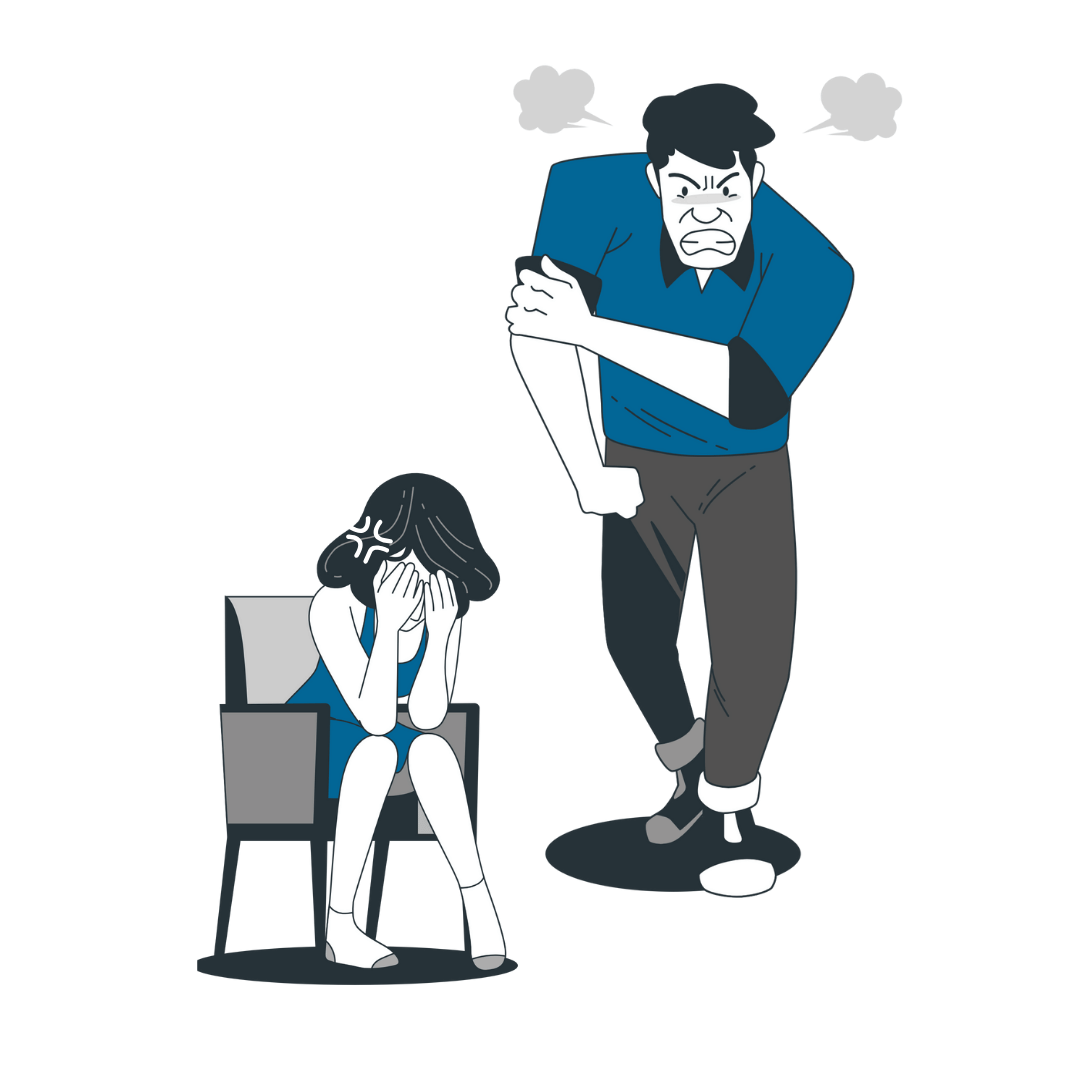Domestic violence is a widespread issue worldwide. It not only causes physical harm but also severely impacts our mental health. It can cause trauma and long-lasting emotional scars. This relationship between domestic violence and mental health emphasises the need for support systems and interventions to address the long-term well-being of those who are affected.

What is Intimate Partner Violence (IPV)?
Domestic Violence or Intimate Partner Violence (IPV) in simpler words, can be defined as physical, sexual, or psychological aggression by a partner or a loved one. It is a major issue impacting millions of women on a global scale, with over 40 million affected, the majority in Asia. South Asia in particular has recorded high rates of IPV, with many women experiencing abuse daily. The most common long-term effect of IPV that affects most women is depression. Despite being widespread, this issue remains stigmatised and unrecognised, causing many women to suffer in silence.

Cultural Norms and Stigma in South Asia
The cultural norms and gender dynamics in South Asia are some of the most common factors that lead to IPV. Most South Asian societies follow patriarchy, where men are given more power than women, who are expected to focus on household duties and caregiving. This not only limits their access to education and jobs but also prevents them from becoming independent. Women are often undervalued and, therefore, more vulnerable to physical, emotional, and sexual abuse.
Stigma is another factor that contributes to IPV in South Asia. Many women are embarrassed and scared to talk about their experiences for fear of exclusion and backlash from society.

Intergenerational Influence on IPV in South Asian Families
According to a few recent surveys, many South Asian women have not only experienced violence in their relationships but also witnessed violence between their parents. In many South Asian families, the in-laws are considered to be a part of the family, and intergenerational housing is common. This can lead to the less commonly discussed topic of in-law abuse. In another survey, it was revealed that about 15% of women facing IPV also reported emotional abuse from their in-laws.
Impact of Intimate Partner Violence
IPV affects an individual’s physical as well as psychological well-being. Victims of IPV are more likely to suffer from depression, anxiety, and other mental health issues. Women who experience IPV are twice as likely to develop a major depressive disorder. According to research, 1 in 4 women who suffer from IPV show symptoms of depression. But the impact is not limited to mental well-being. They can also suffer from physical problems like chronic pain, headaches, and stomach issues. The trauma from IPV can make daily life difficult and diminish the overall quality of life.
The impact of IPV is worsening because of the lack of resources and social support available to South Asian women. Many women find it difficult to access legal aid or counselling, which leaves them trapped in abusive relationships. Financial dependence on their partner and limited social support networks make it hard for them to leave their abusive partners.

Combatting IPV in South Asia: Interventions and Awareness
Efforts are being made to tackle and overcome IPV in South Asia. Many organisations have been raising awareness, providing support to survivors, and even advocating for policy changes to protect the rights of victims. There has also been increasing importance given to culturally sensitive interventions that have been tailored to the challenges faced by South Asians.
GRRIPP South Asia’s project, “Towards Human Rights and its Violation Expulsion” in Bangladesh, is one such intervention. This project helps people, especially women and children, understand rights and protection against abuse and violence. Mobile apps like MyPlan, the National
Domestic Violence Hotline App, the Tech Safety App, and Noonlight provide resources such as legal aid and counselling services to help women come out of abusive relationships and rebuild their lives.

““From every wound there is a scar, and every scar tells a story. A story that says, "I survived."” - Craig Scott
IPV is a pervasive issue that affects the physical and mental well-being of many women in South Asia. However, several efforts like community-based interventions are being made to address this issue. By working together, we can create a safer and more supportive environment for South Asian women, ensuring that they no longer suffer in silence.
If you are someone experiencing Domestic Violence or IPV, know that you are not alone and that there are many resources that can help you. You can seek professional support by talking to mental health professionals here at Heart It Out.
Seek Support Now



